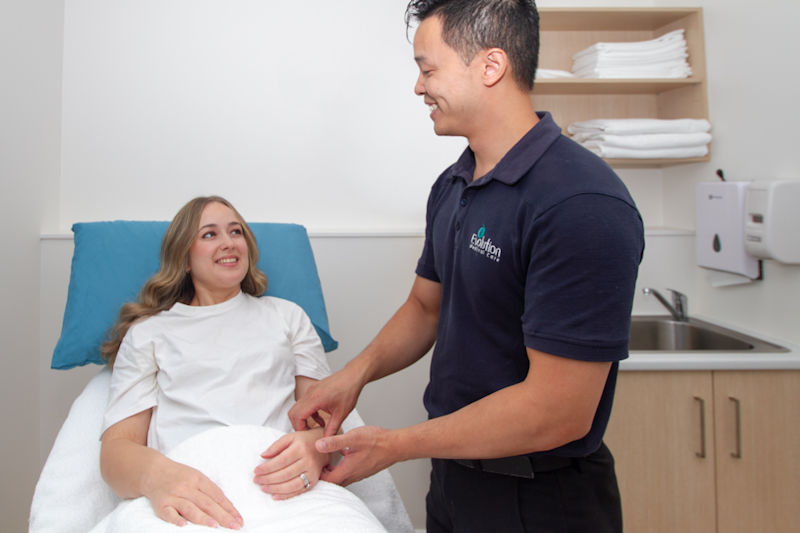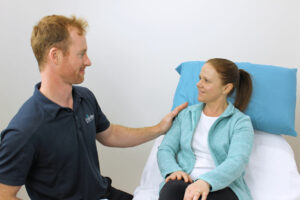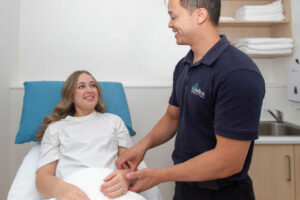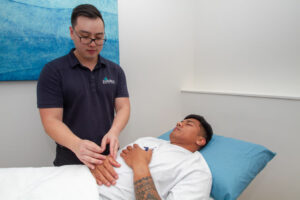Endometriosis is an extremely common gynaecological health concern and may have a huge impact on the quality of life and fertility for those suffering from this condition. According to a study, endometriosis affects approximately 10% of women of reproductive age and increases the risk of infertility by 20 times compared to women without endometriosis!
There are 2 primary ways that endometriosis can have an impact on fertility, the first is perhaps an obvious one which is a blockage of the fallopian tubes or adhesions on the ovaries, both of which result in infertility due to a failure of the eggs to be reached by sperm in the fallopian tube. The second cause of infertility is a bit more complex and relates to the immune and hormonal nature of endometriosis.
What is Endometriosis?
Endometriosis involves an abnormal deposition of endometrial tissue outside of the uterus. This means that there are endometrial cells that belong in the uterus in other parts of the body including the:
- Nose
- Lungs
- Large Intestine
- Area between uterus and rectum
- Ovaries
- In/on fallopian tubes
During menstruation, hormones are produced by the pituitary gland and ovaries which ordinarily causes thickening of the uterine lining in preparation for a possible pregnancy in the luteal phase of the menstrual cycle. In endometriosis, this hormonal fluctuation, an increase in Oestrogen, specifically leads to enlargement and inflammation of this abnormal endometrial tissue placed outside of the uterus leading to:
- Painful periods (dysmenorrhea). Pelvic pain and cramping may begin before and extend several days into a menstrual period.
- Lower back and abdominal pain before/during period
- Pain with intercourse. Pain during or after sex is common with endometriosis
- Pain with bowel movements or urination more frequently during a menstrual period
- Excessive bleeding, occasional heavy menstrual periods or bleeding between periods (intermenstrual bleeding)
- Infertility. Sometimes, endometriosis is first diagnosed in those seeking treatment for infertility
- Other signs and symptoms include fatigue, diarrhoea, constipation, bloating or nausea, especially during menstrual periods
How does endometriosis contribute to infertility?
One of the most common causes of infertility in cases of endometriosis is the adherence of endometrial tissue on the fallopian tube leading to the tube becoming blocked due to enlarged endometrial tissue. This leads to an inability of the egg to become fertilised or if the egg does become fertilised, it will implant in the fallopian tube leading to an abnormal pregnancy and further significant health risks.
In other situations, infertility may still exist in endometriosis cases without endometrial tissue distortion of the fallopian tubes and ovaries that would impair fertility.
In addition to the physical deformities from endometrial tissue adhesion affecting reproductive organs anatomically, endometriosis also impacts fertility through the involvement of systemic inflammation. Endometriosis results in inflammatory chemicals circulating through the uterus and has toxic effects on an embryo that is trying to implant leading to infertility.

Improving Fertility for those with Endometriosis
Treatment for Endometriosis often consists of medications, surgery or alternative therapy such as acupuncture.
When it comes to actually improving fertility outcomes for women suffering from endometriosis, research suggests that it is best to incorporate multiple approaches to care in order to:
- Reduce the severity of endometriosis
- Stabilising and preventing the advancement of endometriosis
Laparoscopic surgery may be used to remove endometrial adhesions and is highly beneficial in order to reduce the amount of endometrial tissue throughout the body. This reduction in endometrial tissue may lead to an improvement in fertility outcomes through:
- Reducing adhesions which may be impairing ovary or fallopian tube function
- Reducing inflammatory markers which are ordinarily produced by endometrial tissue outside of the uterus which are heightened within the uterus and impacts an embryo’s ability to implant
When it comes to stabilising outcomes from a laparoscopy and preventing regrowth of endometrial tissue which would require further laparoscopic surgery, there are 2 treatment options:
- Hormonal therapy medications may be used to suppress ovulation and periods in order to decrease the spreading of endometriosis. However, hormonal medications are often associated with significant side effects including addiction which may significantly impact fertility outcomes.
- Acupuncture has been shown to be effective in both pain relief and also regulating hormone production resulting in a reduction of inflammatory markers being produced by any endometrial tissue that was missed after laparoscopic surgery.
Hence, Acupuncture may be used to smoothly manage endometriosis without the side effects related to hormonal medications!
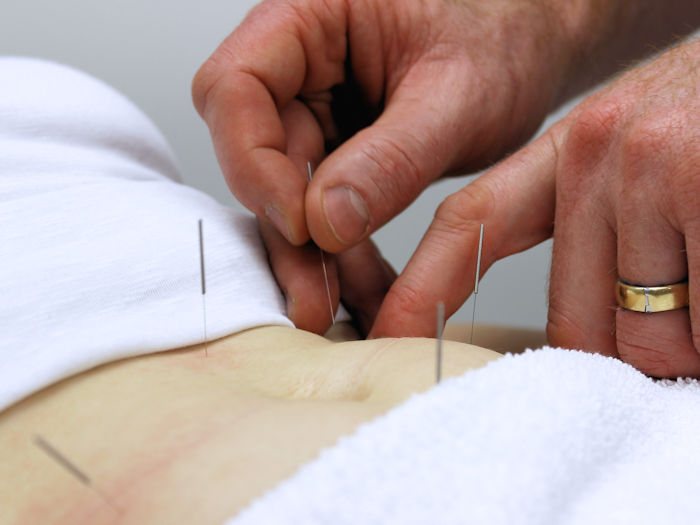
Acupuncture for Endometriosis
Acupuncture is a treatment that relies on the gentle insertion of fine, sterile needles into certain points in the body to stimulate muscles, nerves and connective tissue in order to:
- Regulate reproductive hormones like Oestrogen and Progesterone
- Reduce inflammation
- Improve blood circulation
- Stimulate the release of Endorphins
- Stimulates sensory nerves in order to have reflex effects on other related tissues such as the abdomen/pelvis and also de-activating pain centres in the brain.
Acupuncture is a natural, non-invasive approach that may be used in addition to many other therapies for Endometriosis whether they be surgical, pharmaceutical or natural.
Acupuncture isn’t for everyone and this is something that your Acupuncturist will be able to advise on after assessing your situation. Getting the best results from an Acupuncturist may well include other therapies such as moxibustion, cupping therapy, herbal medicine or other supplements.
Acupuncture therapy for Endometriosis may involve the gentle insertion of needles in the hands, arms, head, abdomen, legs and feet and typically goes for up to 45 minutes. Most patients find the treatment pleasant and relaxing in effect. A standard treatment plan for endometriosis will vary but may consist of weekly or twice weekly appointments for 2-3 months before tapering off in frequency as you see improvements in symptoms.
Conclusion
Endometriosis is a significant and common gynaecological issue that may cause both significant pain and infertility for those that suffer from it.
In order to achieve the best outcomes for your health, as always, we recommend speaking to a healthcare professional. In many cases, there may be multiple issues contributing to infertility and your healthcare professional is the best person to effectively assess and advise the most appropriate course of action for your situation.
Let us help you!
I hope that helps! If you would like to learn if Acupuncture can help you, please call our friendly team on (02) 4709 6727.

